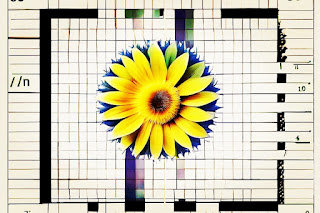Imagination and Numbers
Imagination is capable of making us experience anything through thoughts and ideas. Most of the things we experience during imagination are mental pictures of objects in numbers, numbers as signs and words as signs.
It is a magical realm where numbers dance, creating symphonies of possibilities. In the Fibonacci Sequence and Golden Ratio relationship, for example numbers and magic become next to each other.
In this enchanted space, 1 + 1 can be eleven, and 3.14 becomes a delicious slice of pie. The square root of the negative one twirls like a whimsical fairy, and infinity stretches its arms to embrace eternity.
When you imagine math, numbers pop up in many different shapes and types. Indeed, numbers are a mysterious language of the universe in their nature. Imaginary numbers waltz with reality, and prime numbers whisper secrets to the wind. The golden ratio paints spirals in the sky, while Fibonacci weaves patterns through time.
Zero, the silent hero, balances equations on its delicate shoulders. It's the fulcrum of imagination, where dreams take flight and dragons count their hoards.
What if clouds were made of marshmallows, and rainbows led to chocolate factories? What if gravity played hide-and-seek, and time flowed backward?
Imagine in this realm, numbers wear capes, and algebraic dragons guard ancient theorems. The infinity sign becomes a portal, and mathematics is the language of cosmic poetry.
Close your eyes, embrace the present moment, and let your mind calculate constellations. For in the dance of numbers, imagination is the grand choreographer, and reality is just a footnote in the book of wonder.
Again, a fascinating mathematical paradox known as "The Barber Paradox." Imagine a quaint village with a single barber shop. The barber is a diligent soul who follows these rules:
1. He shaves every man in the village who does not shave himself.
2. He only shaves men who do not shave themselves.
A question pops up into the mind; Who shaves the barber?
Consider two possibilities:
1. If the barber shaves himself, then he falls into the category of men who shave themselves. However, according to rule #2, the barber should only shave men who do not shave themselves. So, he shouldn't shave himself.
2. If the barber does not shave himself, then he belongs to the group of men who don't shave themselves. But rule #1 states that he must shave every man who does not shave himself. Therefore, he should shave himself.
This paradox creates a loop of contradictions. If the barber shaves himself, he shouldn't; if he doesn't, he should. It's like chasing your own tail in a mathematical maze.
The resolution lies in realizing that the initial setup is self-referential and inherently contradictory. The barber cannot exist in this precise scenario, making it a delightful puzzle for logicians and lovers of paradoxes.
It's important to note that, in the realm of mathematics, sometimes the most intriguing paths lead to tangled knots of wonder!
Mathematicians, those intrepid explorers of the numerical cosmos, wield their mental telescopes and compasses to navigate the vast terrain of mathematical conundrums.
Mathematicians get different motivations from different life backgrounds and experiences. "Four tribes of Mathematicians" gets us into an “astonishing experimental investigation” of what brains do when they experience mathematical beauty.
A glimpse into problem-solving odyssey:
1. Curiosity Ignition: A mathematician's journey begins with a spark—a tantalizing question, an unsolved riddle, or a mysterious pattern. They ponder, "What if?" and set sail toward the shores of enlightenment.
2. The Art of Abstraction: Like sculptors chiseling marble, mathematicians abstract reality into elegant forms. They strip away extraneous details, leaving behind the essence—the pure geometry, algebraic structure, or logical framework.
3. Hypothesis Hyperspace: Armed with hypotheses, they venture into the cosmic library of theorems. They consult ancient scrolls (mathematical literature) and cross-reference constellations (previous research).
4. Equation Alchemy: Math wizards concoct potent elixirs—equations! They mix variables, constants, and symbols, stirring the cauldron of logic. Their spells transform chaos into order, revealing hidden truths.
5. Proof Quests: Mathematicians don their armor of rigor and embark on quests for proofs. They battle dragons of doubt, wield swords of induction, and ride steeds of deduction. Victory lies in unveiling the golden truth.
6. Collaborative Starships: In the galactic academy, mathematicians collaborate. They attend celestial conferences, exchange scrolls, and peer through telescopes at distant conjectures. Together, they chart uncharted realms.
7. Eureka Nebulas: Ah, the elusive "Eureka!"—a nebula of insight. It strikes when least expected: during a moonlit stroll, a sip of tea, or a midnight reverie. The universe whispers secrets, and mathematicians listen.
8. Infinity Gazing: Mathematicians gaze into the abyss of infinity. They ponder infinite series, fractals, and transcendental numbers. Infinity is their muse—a siren song that lures them deeper into the cosmic sea.
9. Quantum Calculus: At the quantum level, mathematicians dance with uncertainty. They measure probabilities, integrate wave functions, and surf the wave-particle duality. Their calculators hum with quantum symphonies.
10. Legacy Constellations: Mathematicians leave constellations in the sky—a theorem here, a conjecture there. Their names echo through time: Euclid, Pythagoras, Euler, Ramanujan. Each discovery adds a star to the firmament.
Mathematics is a very interesting field of imagination which can't be expressed by mere calculations, but it's rather the poetry of the cosmos, written in numbers and symbols.





Thank you for reading!